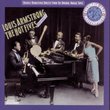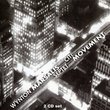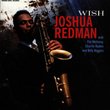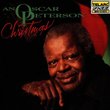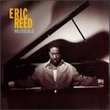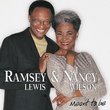| All Artists: Elgar, Rattle Title: Elgar: Dream Of Gerontius Members Wishing: 0 Total Copies: 0 Label: Angel Records Release Date: 11/5/2002 Album Type: Import Genre: Classical Style: Number of Discs: 2 SwapaCD Credits: 2 UPC: 077774954921 |
Search - Elgar, Rattle :: Elgar: Dream Of Gerontius
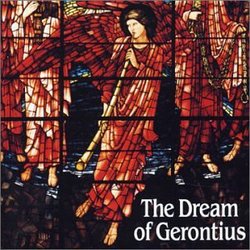 | Elgar, Rattle Elgar: Dream Of Gerontius Genre: Classical
|
Larger Image |
CD DetailsSimilarly Requested CDs
|
CD Reviews'USE WELL THE INTERVAL' DAVID BRYSON | Glossop Derbyshire England | 01/27/2005 (4 out of 5 stars) "Cardinal Newman was no poet. Over and above his bad rhymes and flat-footed poetry-bereft diction, many of his lines are downright risible, like the gem of his muse that I have selected as the caption for this review or `In a deep hideous purring have their lives' or the sublime `Rouse thee, my fainting soul, and play the man' - as distinct from playing the ball presumably.
Bad verse it may be, but set it to music and none of that matters any more. For one thing it is almost a custom-made libretto with its variations in the rhyme-scheme and in the length of the lines. For another, whatever it lacks in literary merit it well and truly makes up for in fervour and conviction. In Newman's generation, and in Elgar's half a century later, the traditional Catholic vision of what is waiting for us beyond that gate we all have to pass through was still in the prime of its doctrinal certainty and infallibility, obsessed with punishment in its claim to know the will of the Creator. To me it is a strange congeries of human-manufactured Things To Be Believed, with a corresponding panoply of imaginative intimidations to be visited on the incredulous as the just penalty for their thought-crimes. To Newman and to Elgar it was the guiding beacon of their existence, and Elgar was able to make a work of art out of it. This is a set that I have listened to carefully and thought about carefully. The intensity of the belief has to come across, and all the interpreters have to do in that respect is not get in the way of the composer, who conveys it with enormous power. That side of the matter gives me no problem at all. Three things still leave me unconvinced. One is the singing of John Mitchinson as Gerontius. He starts well enough and in general he is not bad, but as the first part progresses his voice develops a gritty edge to it (perhaps in part the fault of the recording). I also winced at his enunciation of `Go in the name of Goad', and he is really rather dreadful at `Mortis in discrimine'. Another problem for me was the recording. Elgar's Gerontius covers a gigantic dynamic range from the faintest pianissimo to the colossal shout of `Praise to the Holiest'. Mahler's 8th poses the same problem, and my recording of that from Sinopoli seems to handle it much better. On this set I have to use a fairly high volume-setting to get any kind of reasonable tone out of the pianissimo stretches, to be nearly blown out of the room at `Praise to the Holiest' and at the orchestral crash just before `Take me away'. There is no trace of distortion at even the biggest climaxes, the fault is a sense of remoteness in the quiet music. The third difficulty I have is with the choice of tempi. There is no doubt at all that Rattle's slow beat in the prelude is mightily solemn and imposing, nor do I question his mastery of tempo-control in general - his flexibility and creativity in the big `Praise to the Holiest' chorus are wonderful. I just have a certain nagging feeling that most of it is a little too slow. How I shall continue to feel about this I simply have no way of knowing at the moment. It is well within the bounds of imagining that I myself am not rising adequately to the concept presented to me. Janet Baker is first-class as one might expect in the part of the Angel, although even she is not quite the equal of Gladys Ripley in the old Sargent recording from 1945, now happily available once more. Her voice does not seem to me to suit the role quite so well, although she sings like the best of the angels in the `Alleluia' sequences. In the small parts of the Priest and the Angel of the Agony John Shirley-Quirk is just fine. The liner-notes are quite outstandingly good. Two are from the estimable Mr Lyndon Jenkins, whom I have recently come to know through his notes on some Delius reissues from Beecham, one relating to the work itself the other a very entertaining account of the chaos and muddle that attended the its early genesis. One thing I bless Mr Jenkins for is that he does not even once use the word `Edwardian'. This is a work about Catholicism, and the only relevant Edward is Edward Elgar. It's a set I shall have to listen to a lot more, but I sense already that it will be a long time, if indeed ever, before I make up my mind about it. The belief has been growing on me for some years that Rattle is the greatest conductor of this generation, and I am only too happy and willing to learn from him. Before trying to express an opinion of this Gerontius I listened to it, uninterrupted and without distractions, twice from end to end. Between the playings I reminded myself of how it was done in the very noteworthy old Sargent/Heddle Nash/Liverpool P O set from 1945, of which I have also offered a review. Hopefully in doing so I used well the interval." |

 Track Listings (7) - Disc #1
Track Listings (7) - Disc #1